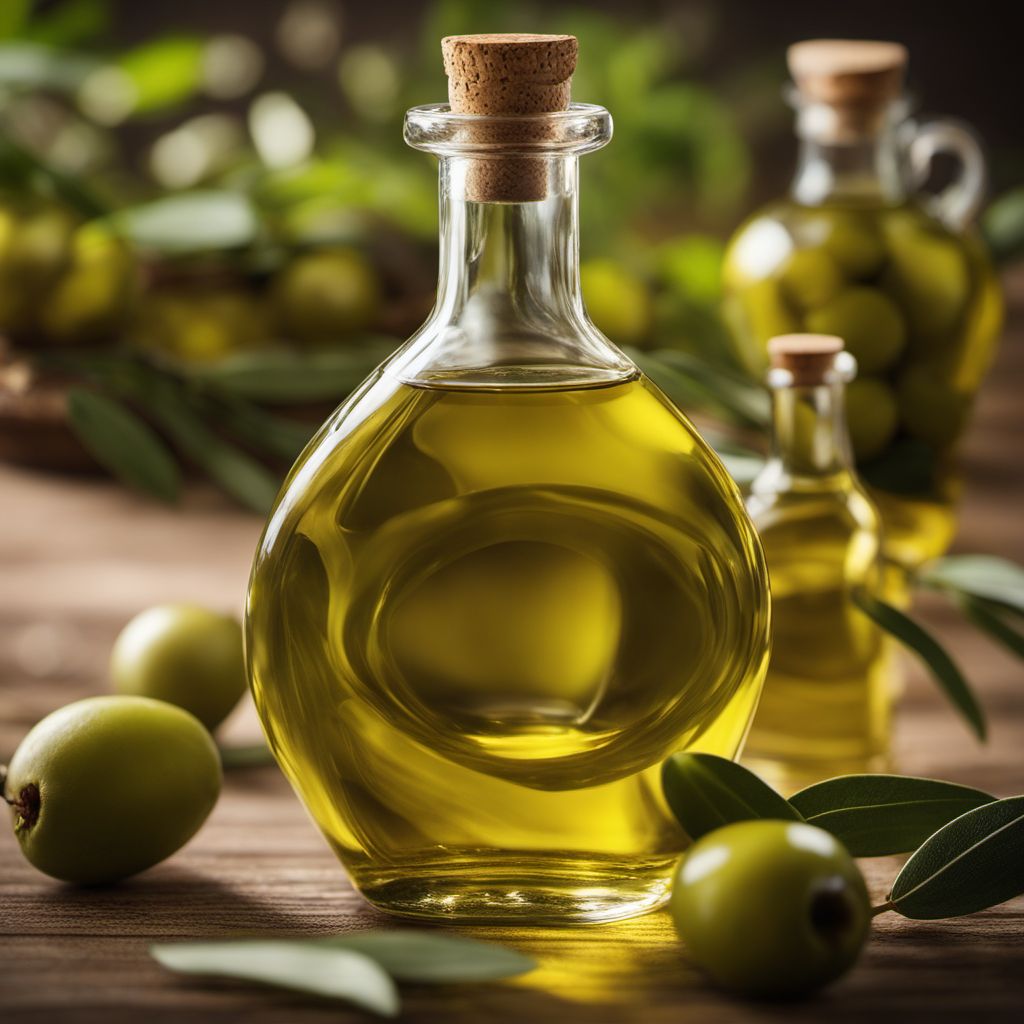
Ingredient
Olive oil, refined
The Refined Elixir of the Mediterranean
Refined olive oil has a light golden color and a mild, fruity taste. It is characterized by its smooth and velvety texture, making it ideal for sautéing, frying, and baking. This type of olive oil undergoes a refining process that removes impurities and enhances its smoke point, making it more suitable for high-heat cooking methods.
Origins and history
Olive oil has been a staple in Mediterranean cuisine for thousands of years. Its origins can be traced back to ancient civilizations such as the Greeks and Romans, who recognized its culinary and medicinal properties. Refined olive oil is a modern variation that has gained popularity due to its versatility and mild flavor.
Nutritional information
Refined olive oil is a good source of monounsaturated fats, which are beneficial for heart health. It also contains vitamin E and antioxidants that contribute to its nutritional value. However, it is important to note that refined olive oil has a lower content of polyphenols compared to extra virgin olive oil.
Allergens
Refined olive oil is not associated with any known allergens.
How to select
When selecting refined olive oil, look for bottles that are labeled as refined" or "pure." Check the expiration date to ensure freshness. Opt for reputable brands that adhere to quality standards and have a good reputation for producing high-quality olive oil."
Storage recommendations
To maintain the freshness and quality of refined olive oil, store it in a cool, dark place away from direct sunlight. Avoid exposing the oil to heat or fluctuations in temperature, as this can affect its flavor and quality. It is also important to tightly seal the bottle to prevent oxidation.
How to produce
Amateur producers can grow olive trees in regions with a Mediterranean climate. However, the process of producing olive oil from olives requires specialized equipment and expertise. It is recommended to consult local agricultural experts or olive oil producers for guidance on small-scale production.
Preparation tips
Refined olive oil is a versatile ingredient that can be used for sautéing, frying, baking, and even as a dressing for salads. Its mild flavor allows it to complement a wide range of dishes without overpowering other ingredients. It is particularly suitable for dishes that require a neutral oil with a high smoke point.
Substitutions
Extra virgin olive oil or other neutral oils such as canola or sunflower oil can be used as substitutes for refined olive oil. However, keep in mind that the flavor and aroma may differ slightly.
Culinary uses
Refined olive oil is commonly used in Mediterranean cuisine, including dishes such as pasta, roasted vegetables, grilled meats, and marinades. It is also a popular choice for baking, as it adds moisture and a subtle fruity flavor to cakes, bread, and pastries.
Availability
Refined olive oil is widely available in Mediterranean countries such as Spain, Italy, Greece, and Tunisia. It is also exported to various regions around the world and can be found in most grocery stores and supermarkets.




